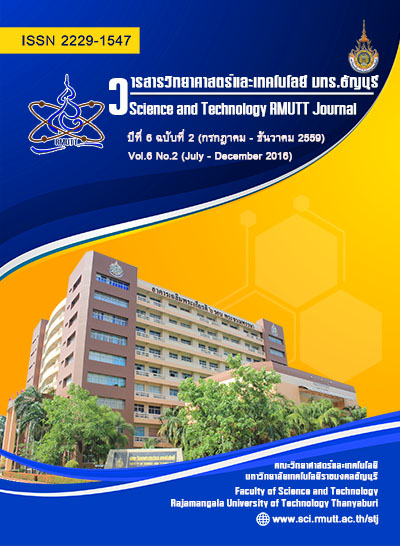Opinion Classification of Politics on Social Network using Associative Classification
Main Article Content
Abstract
This paper presents opinion classification of politics during the government revolution in Thailand using associative classification. The opinions are classified from Facebook statuses written in Thai which are complex. Features of the statuses are extracted by using positive and negative words that are collected from social networking websites. Using feature association based on associative classification leads to the resulting rules for opinion classification with specifying the confidence of either positive or negative opinion. The experimental results show that associative classification can give accuracy to 77.75% for political opinion classification.
Article Details
References
A. Pak and P. Paroubek. "Twitter as a Corpus for Sentiment Analysis and Opinion Mining". in Proceedings of the Seventh conference on International Language Resources and Evaluation (LREC'10). May 2010. 35-39.
eBizMBA.com. Top 15 Most Popular Social Networking Sites | April 2014. [cited 8 April 2014]; http://www.ebizmba.com/articles/social-networking-websites.
A. Shrivatava and B. Pant. "Opinion Extraction and Classification of Real Time Facebook". Global Journal of Computer Science and Technology. 12 (2012).
B Liu and L.Zhang. "A Survey of Opinion Mining and Sentiment Analysis". In: Aggarwal CC, Zhai C, eds. Mining Text Data. US: Springer; 2012.415-463.
J. Akaichi, Z. Dhouioui and MJL-H.Perez. "Text Mining Facebook Status Updates for Sentiment Classification". in Proceeding of the 17th International Conference on System Theory, Control and Computing (ICSTCC). Sinaia. 11-13 Oct. 2013. 640-645.
J. Akaichi. "Social networks' Facebook' statutes updates mining for sentiment classification". in Proceedings of SocialCom/PASSAT/BigData/EconCom/ BioMedCom. Washington, DC, United States. 2013. 886-891.
PN. Stuart Russell. "Artificial Intelligence A Modern Approach". New Jersey: Prentice Hall; 1995.
C. Cortes and V.Vapnik. "Support-Vector Networks". Mach Learn. 20 (1995). 273-297.
A. Ortigosa, M. Martín and M. Carro. "Sentiment Analysis in Facebook and its application to e-learning". Compuers in Human Behavior. 31(2014). 527-541.
J. Keeshin, Z. Galant and D. Kravitz. "Machine Learning and Feature Based Approaches to Gender Classification of Facebook Statuses". http://thekeesh.com/ cs224n/final_writeup.pdf.
R. Irfan, K. King, D. Drages, S. Ewen, U. Khan, A. Madani, et al. "A Survey on Text Mining in Social Networks". The Knowledge Engineering Review. 2004.1-24.
The Graph API. [cited 20 April 2014]; https://developers.facebook.com/docs/graph-api.
R. Agrawal, T. Imielinski, A. Swami. "Mining Association Rules between Sets of Items in Large Databases". in Proceedings of the 1993 ACM SIGMOD Internatinal Conference on Mangament of Data. USA. 207-216.
B. Liu. "Integrating Classification and Association Rule Mining". Proceedings of the Fourth International Conference on Knowledge Discovery and Data Mining; New York. 80-86.
F. Coenen. LUCS KDD implementation of CBA (Classification Based on Associations). http://www.csc.liv.ac.uk/~frans/KDD/Software/CMAR/cba.html, Department of Computer Science, The University of Liverpool, UK, 2004.


